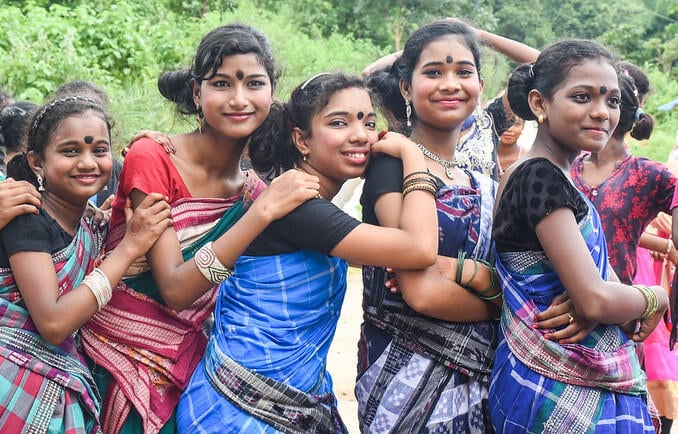Asia-Pacific Multi-Stakeholder Dialogue on Bodily Autonomy and Sexual and Reproductive Health and Rights
On 3 June 2021, UNFPA and International Planned Parenthood Federation (IPPF) convened tenacious and dedicated leaders and frontliners working to safeguard bodily autonomy and sexual and reproductive health rights in crisis-affected communities throughout Asia-Pacific. Together, we renewed and inspired collective action to advance women and girls’ ability to exercise these rights as our region emerges from the devastating setbacks of COVID-19.
We hope this dialogue will continue to catalyse productive collaborations to further progress the work of the Generation Equality Forum’s (GEF) Action Coalition on Bodily Autonomy and Sexual and Reproductive Health and Rights (SRHR).
What we heard from our speakers:
- The COVID-19 pandemic has made what was already hard even more challenging: Disparities in access to sexual and reproductive health information and services for many women and girls has worsened drastically, especially for those in underserved communities and for those who face persistent stigma and discrimination. This has fundamental repercussions to the bodily autonomy of women and girls.
- His Excellency, Mr Roland Galharague, French Ambassador to Malaysia, underscored the need for - and France’s commitment to - a series of priorities when it comes to ensuring the right to bodily autonomy: Comprehensive sexuality education for young people; improved availability, accessibility, acceptability and quality of contraception and pregnancy termination services; and political and social measures so girls and women gain complete control over their own bodies.
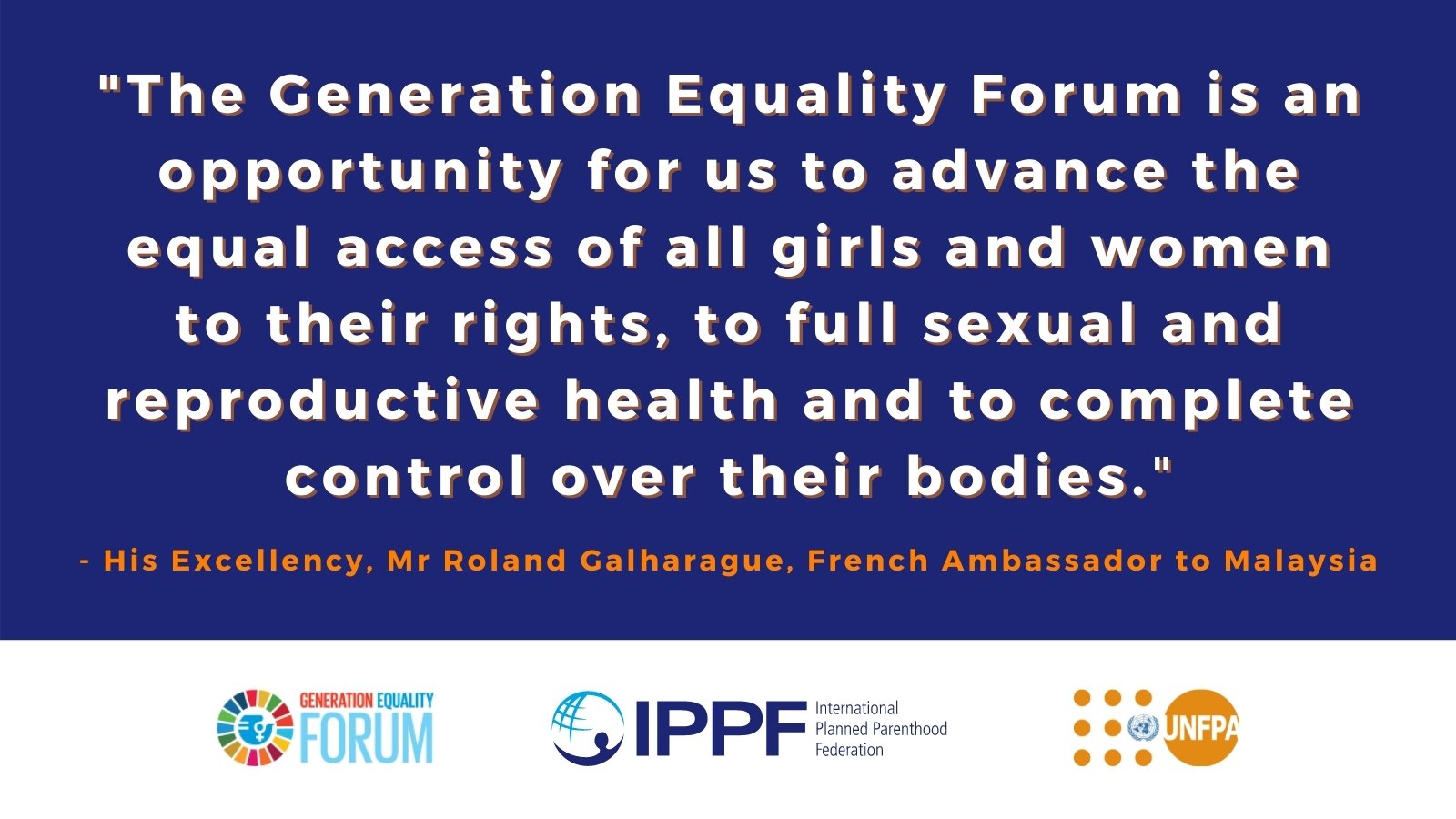
- Upala Devi (Regional Gender Technical Adviser, UNFPA Asia and the Pacific Regional Office) outlined the vision for the GEF Action Coalition on Bodily Autonomy and SRHR: To empower women and girls in all their diversity to exercise their SRHR and to make decisions about their bodies free from coercion, violence and discrimination. She urged all of us to become leaders or commitment-makers to further progress this vision. Make your commitments by 18 June 2021.
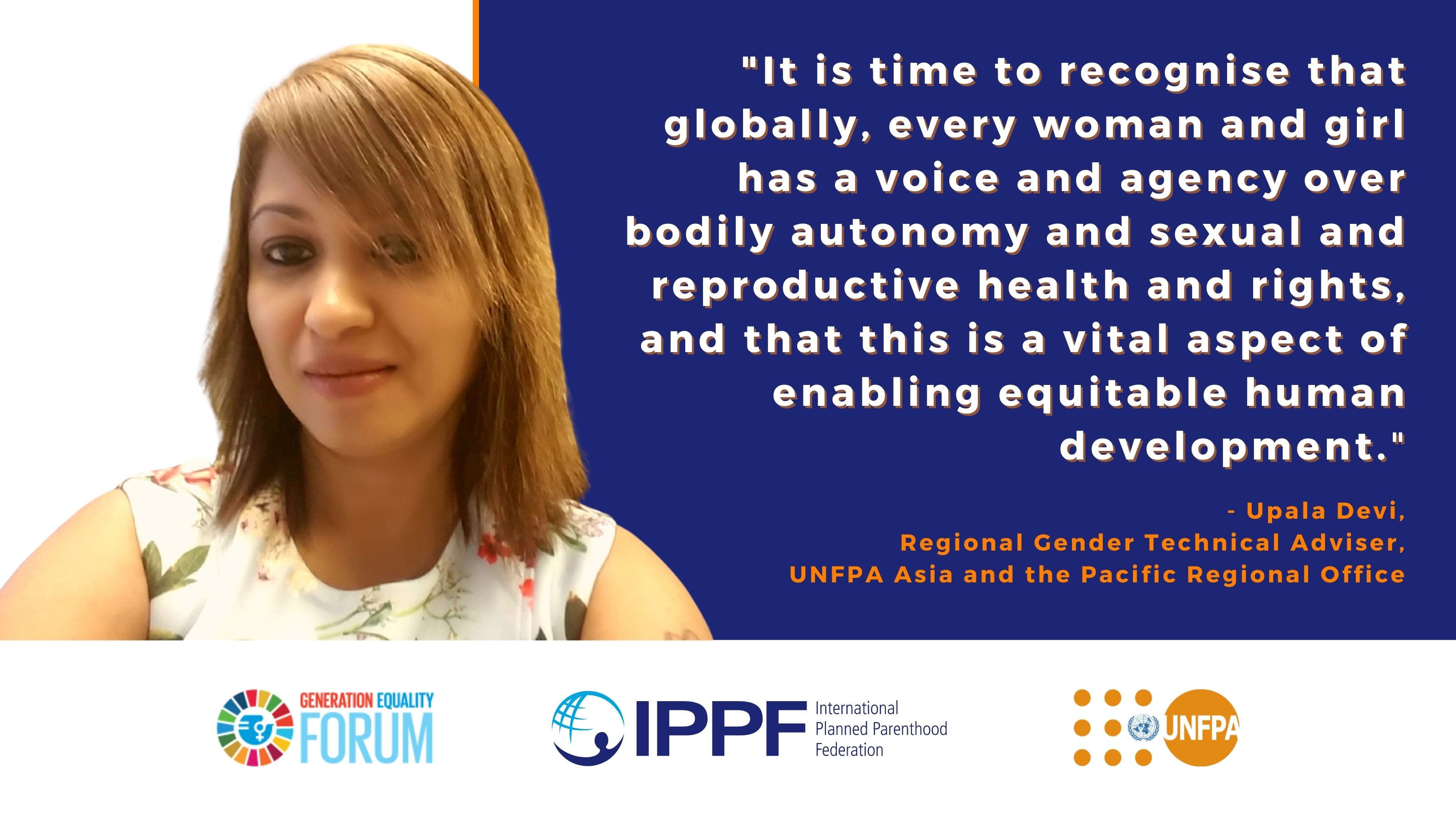
- Tomoko Fukuda (Regional Director, IPPF East & South East Asia and Oceania Region) called upon civil society to help unpack the diverse challenges that women and girls face in accessing SRH services and to voice these needs to governments and other decision-makers. In doing so, we can prevent unintended pregnancies and thus improve women’s ability to gain control over their own lives.
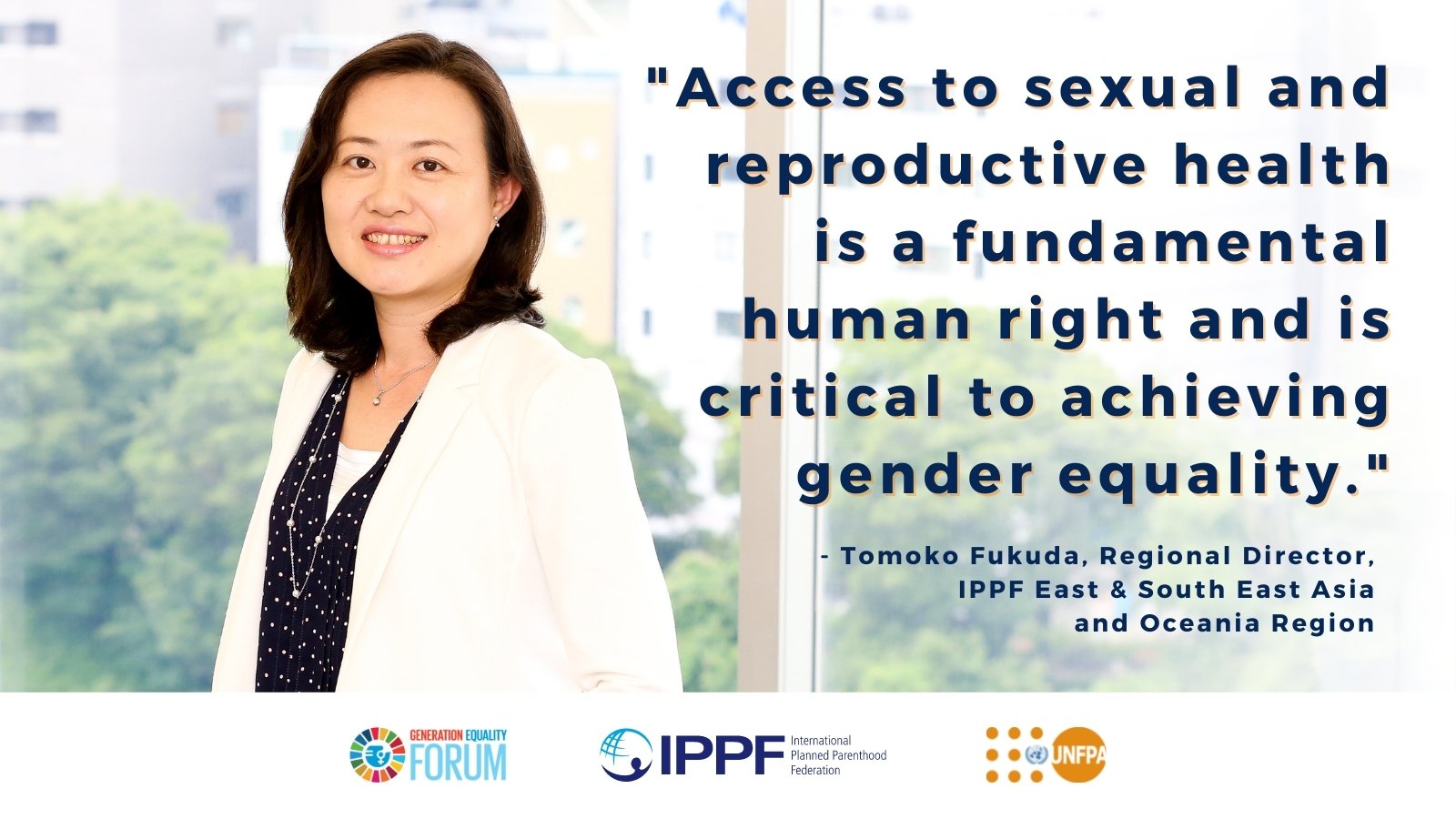
- Sivananthi Thanenthiran (Executive Director, The Asian-Pacific Resource & Research Centre for Women - ARROW) reflected on the history and changes of the feminist movement since Beijing and ICPD, sharing her hope that GEF captures the same momentum that grabbed the world’s attention nearly 30 years ago and created countless critical changes for women’s equality. She reminds us that GEF and its Action Coalitions are an opportunity to push forward the “unfinished agenda of Beijing” and to achieve the Sustainable Development Goals (SDGs) and ICPD Programme of Action.
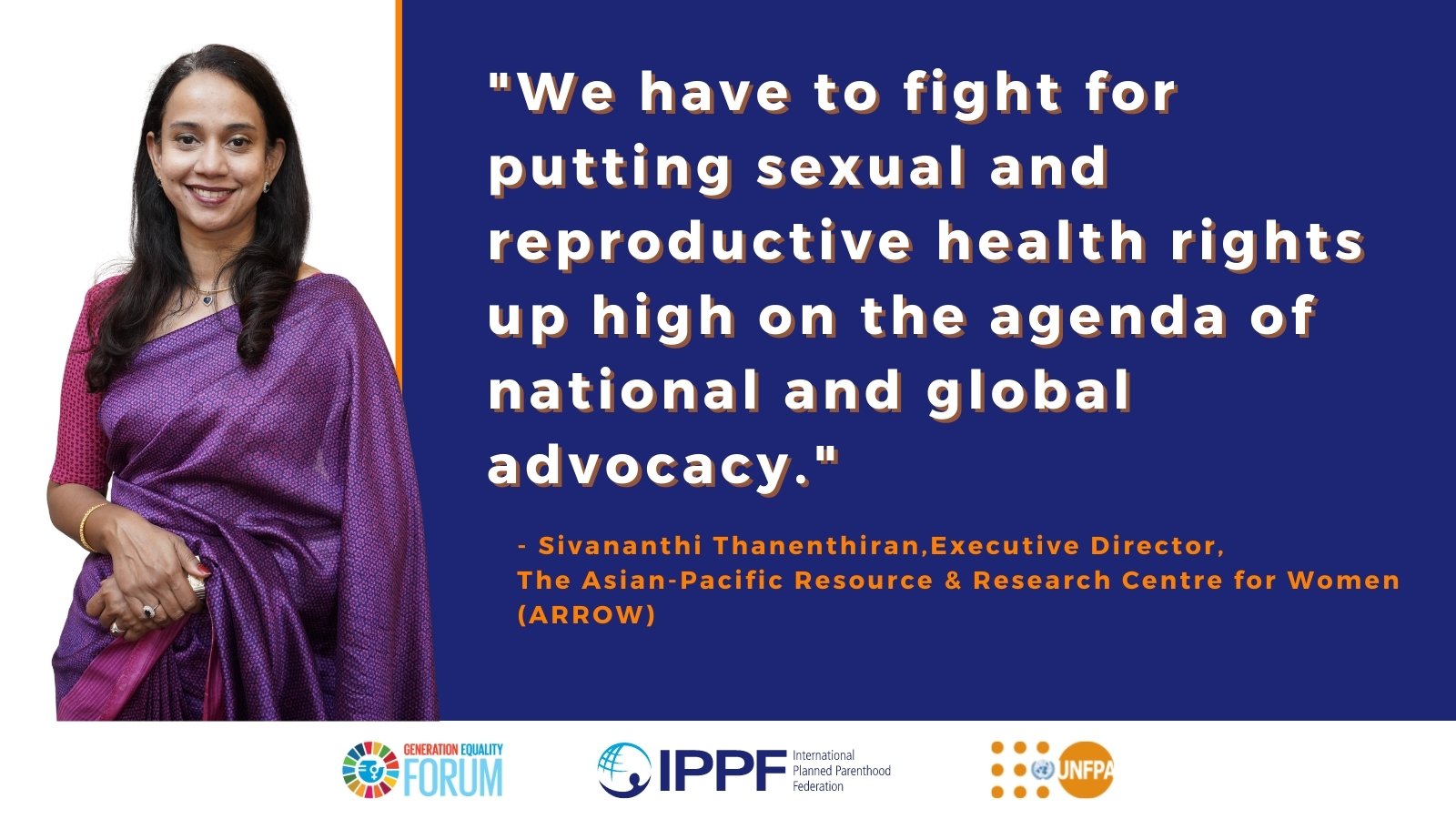
- Surakshya Giri, an inspirational youth activist from Nepal, requested Action Coalition partners to help address the gaps in flexible, culturally responsive and youth-friendly comprehensive sexuality education, especially in socially excluded and underserved communities. She also calls on young people to play an active role in advancing gender equality and reproductive rights as torchbearers of ICPD and the SDGs.
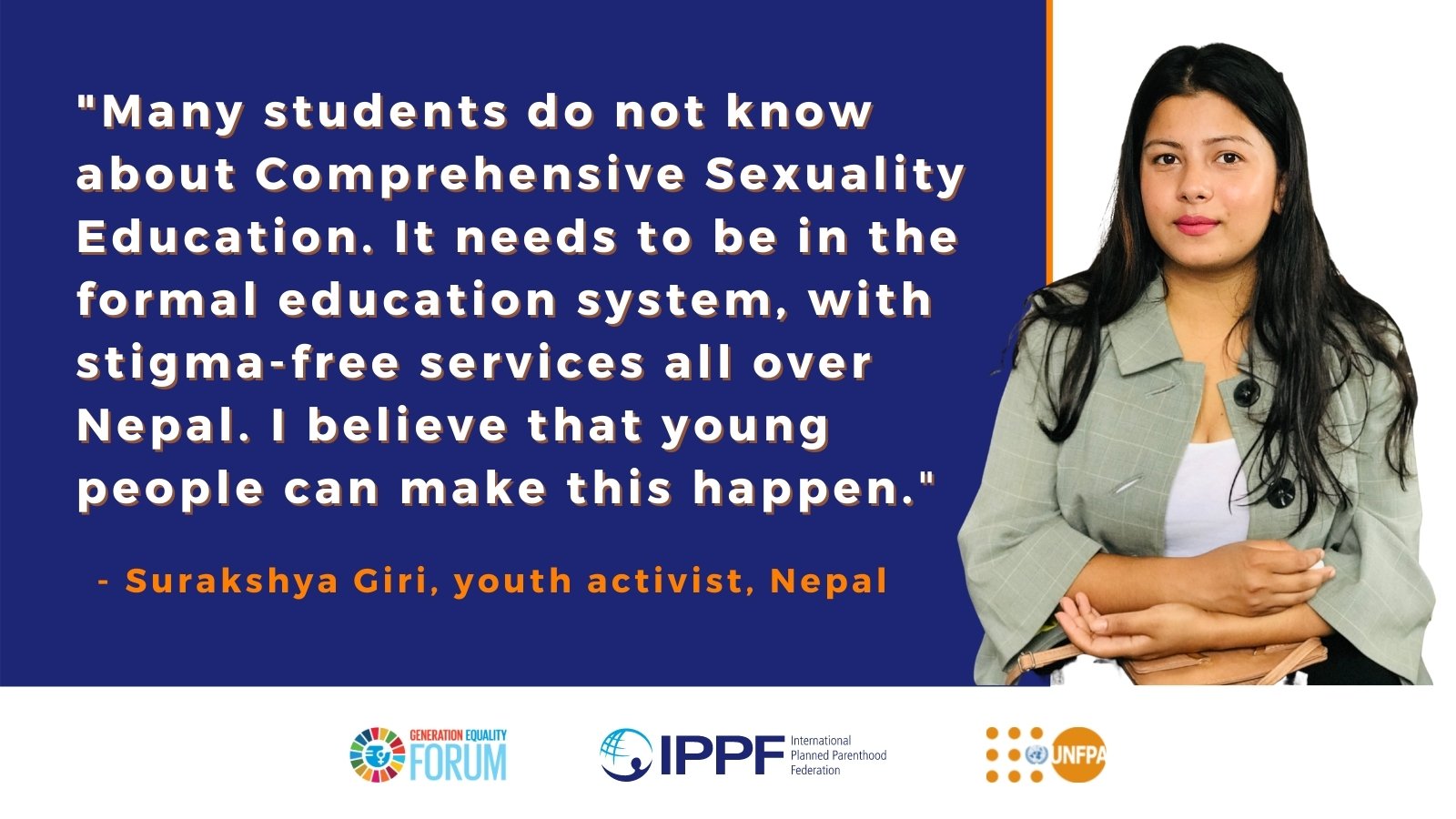
- Selai Cama Korovusere (Director for Women, Ministry of Women, Children & Poverty Alleviation, Fiji) noted the Fijian Government’s collaboration with relevant stakeholders to put women and girls at the centre of national COVID-19 response plans ensuring to reach those left furthest behind while safeguarding and leveraging gains made on gender equality and women and girls' rights. There is an urgent need for gender data in the Pacific, including evidence on SRHR, to change attitudes and to inform policies for gender equality and the empowerment of all women and girls.
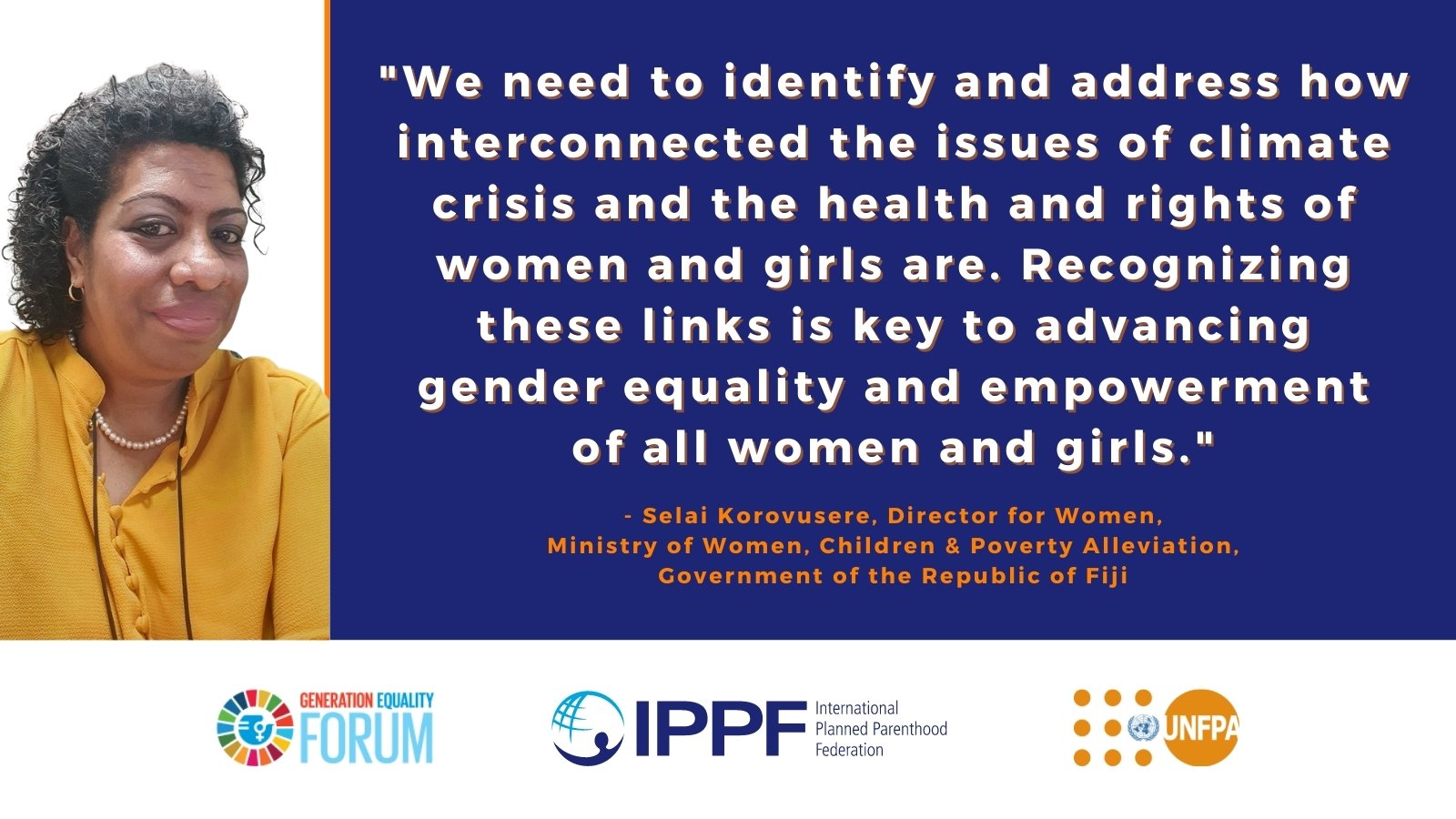
- Björn Andersson (Regional Director, UNFPA Asia and the Pacific Regional Office) highlighted that 40 per cent of women and girls in the Asia-Pacific region are robbed of their rights to make simple but extremely consequential choices about their own bodies, and shared UNFPA’s long-standing efforts with governments, civil society and UN partners to tackle these challenges in the region.
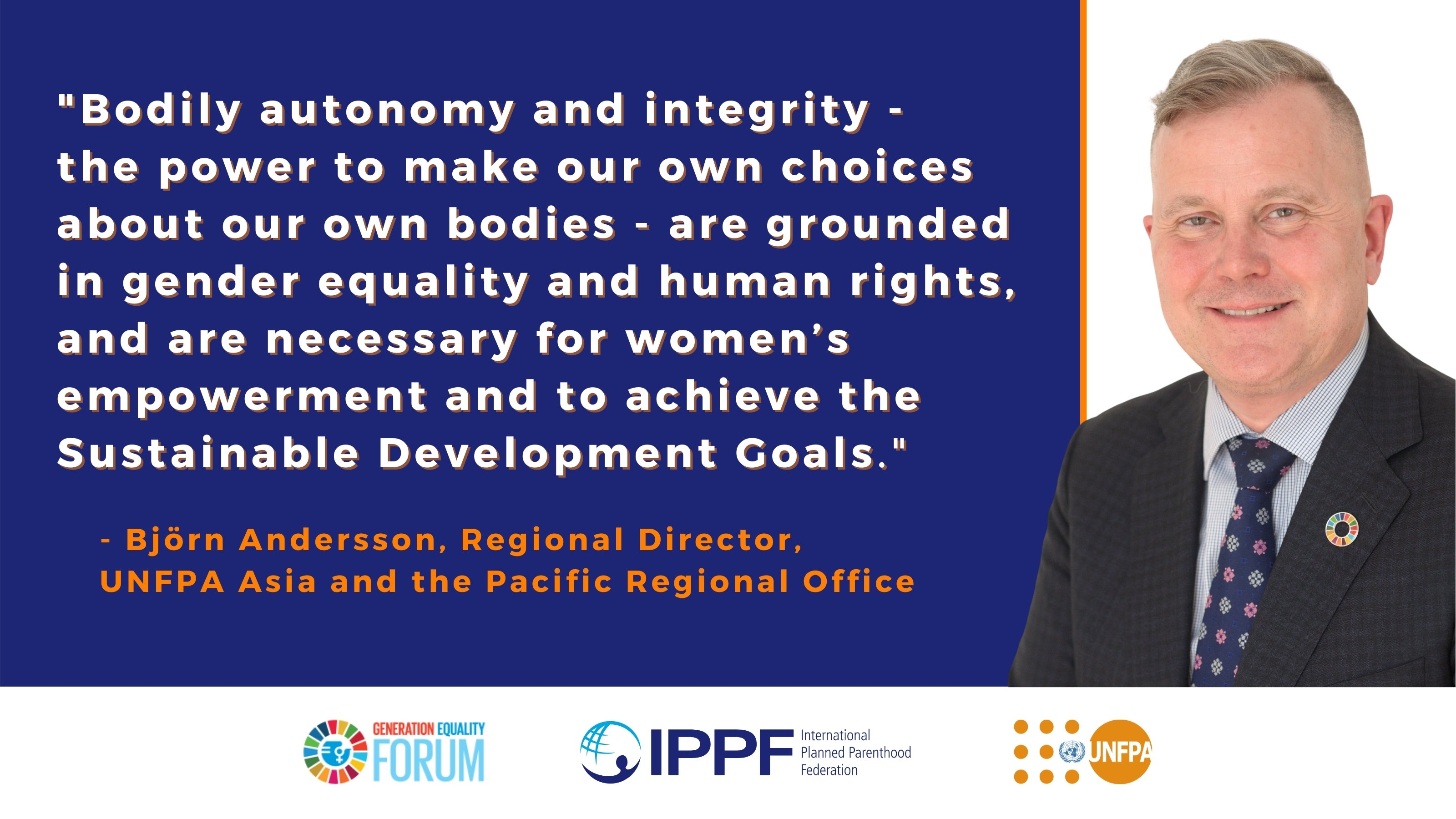
- And finally, our moderator, Tehmina Kaoosji (independent broadcast journalist, gender activist and media personality, Malaysia), offered a sliver of hope: The current spotlight on the increased and intersecting discriminations faced by women and girls as a result of the COVID-19 pandemic may be its silver lining. If harnessed, this heightened attention could make the achievement of gender equality more likely in our lifetimes.
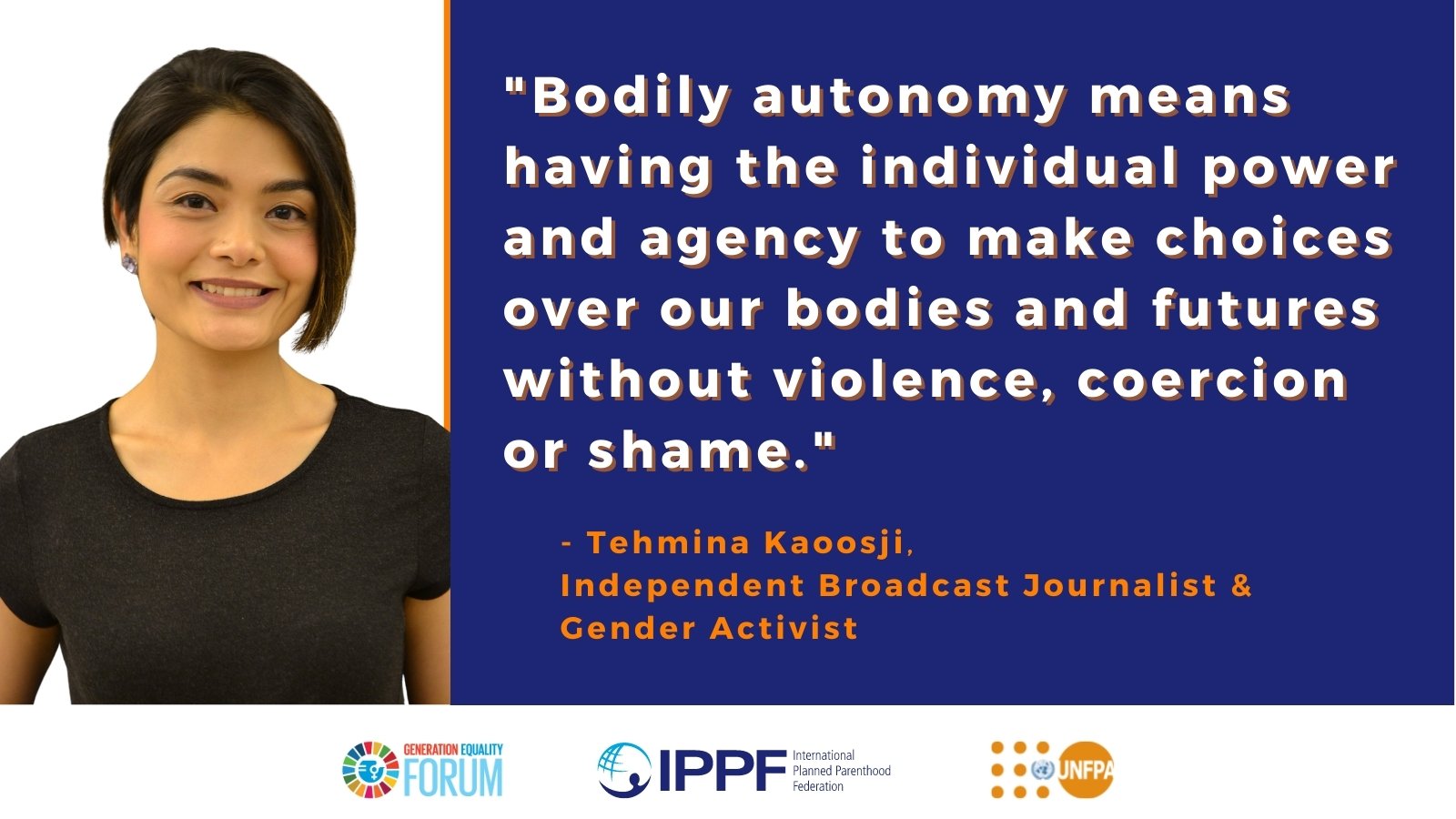
What we heard from you:
- Progressive action from today’s leaders is needed to pave the way for younger generations to take the lead in further realising women and girls’ bodily autonomy and SRHR.
- A profound interest in increased and concrete opportunities for collaboration between activists and civil society organisations working to advance women’s rights, bodily autonomy and SRHR.
- A need for effective implementation of laws and international standards on these issues, and for them to be made more inclusive through community-level alliance building with diverse and intersecting actors.
- A desire for cross-cultural solutions to advance women and girls’ bodily autonomy and SRHR in settings with highly diverse populations.
The Generation Equality Forum opened in Mexico last March, and will culminate in Paris from 30 June to 2 July, 2021. Register here to gain access to the GEF's digital platform, to attend nearly 90 events featuring 500 panelists and interact with tens of thousands of participants from around the world.
UNFPA, IPPF and ARROW, together with France and other governments, international organisations, private companies and philanthropies, and civil society and youth-led partners, constitute the leadership structure of the Generation Equality Forum Action Coalition on Bodily Autonomy and Sexual and Reproductive Health and Rights.
UNFPA's 2021 State of World Population Report, My Body is My Own, is the first-ever United Nations report on bodily autonomy. Download it here: www.unfpa.org/SOWP-2021

